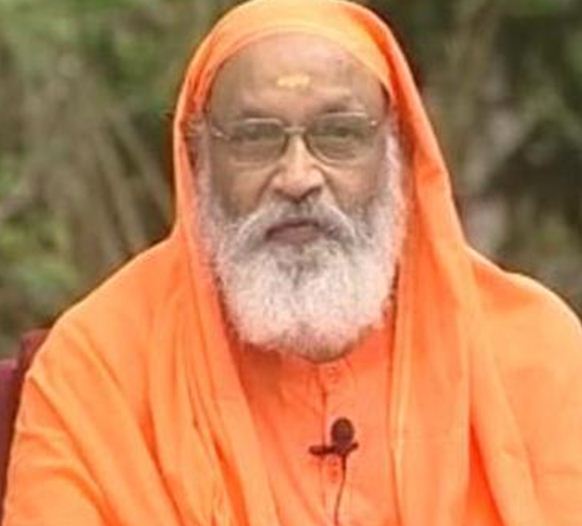Swami Dayanand Saraswati
Vedanta is addressing the confusion regarding the identity of Jiva and Isvara. A common confusion is that Isvara is away from me. Jagat is there, but there is no Isvara. Vedanta teaches that jagat is non-separate from Isvara. Then there are only two entities now – Jiva and Isvara –vyasti and samasti. Then the jagat is reduced further to mithya, because Isvara-srsti is also mithya.
Vastu is only one non-dual whole. It is knowledge all the way – knowing. Knowing means communication – one should be able to communicate. There is no mysticism. If you say Ananta is atma, there is nothing mystic about it. If you say ‘Bliss’, it becomes mystical, because it is now open to the question – what kind of bliss?
People have words. They say ‘ineffable’ bliss. Is it like grilled cheese – when you put cheese between bread slices and grill it, the melted cheese come out. Will bliss come out like that? If atma is ‘ineffable’, why talk? It does not make sense.
You put the people on a big trip. Ananda has to be Ananta. “Satyam-jnanam-anantam brahma” is the beginning, the opening in the Taittareya BrahmAnandavalli, which ends with Ananda being equated to atma. It is svarupa-Ananda and not vrtti-gata-Ananda. Saccit has nothing to do with vritti. That Saccit is the only thing which exists, therefore it is Ananta, limitless. Suppose you say Bliss – how do you ever know what is “atma bliss”? How is it different from “Ice-cream Bliss” or “Hawaii Bliss”?
One person says, “Yesterday in meditation, I experienced Bliss”. How to know? You have to go to a Guru. It is a matter of knowing I am Saccidananda. One fellow puts B in uppercase, another puts all letters in the word Bliss in uppercase – BLISS. That is why, I say Ananda is limitlessness – it has the same meaning of Ananta, limitlessness, wholeness, purnatvam.
It cannot be imagined or conceived but it can be communicated, clearly, by negating time-wise, space-wise and object-wise limitations, because it happens to be the self-evident you. Limitlessness, wholeness is different from bliss. Bliss is an experiential joy, known through a thought modification.
After translating bliss you have to negate it and say “it is not this bliss or that bliss” and say it is “Ineffable bliss”. You have to say, it is not experienced bliss – then what bliss is it? “Not experienced bliss” – how could you ever say that? Then why does śāstra use the word Ananda? Because the jiva is not after sat or cit, but after Ananda.
Everyone wants Ananda. What you seek is yourself. Every experience of empirical Ananda enjoys the presence of svarupAnanda. Without svarupAnanda, you cannot have any degree of Ananda. That is what you are seeking. That is sat-cit, that is Ananda, which is you.
Excerpted from arshavidya.in. Swami Dayananda Saraswati was a renowned traditional teacher of Advaita Vedanta, and founder of the Arsha Vidya Gurukulam







